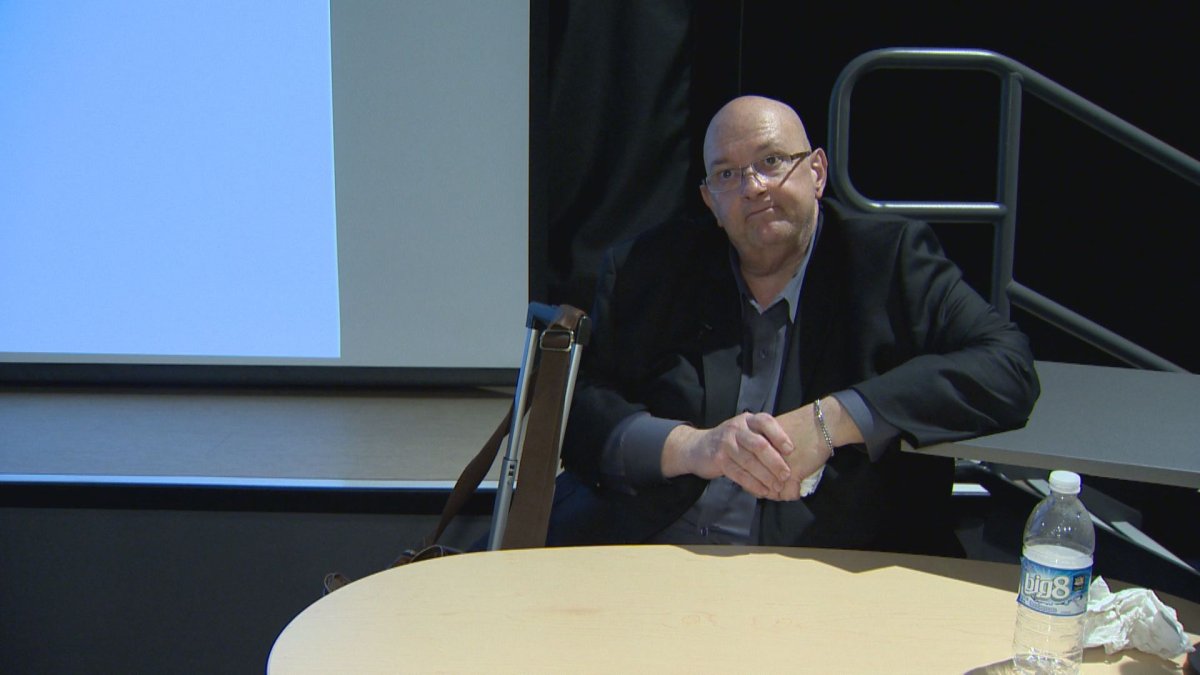Michael Villeneuve, CEO of the Canadian Nurses Association, gave a free, public lecture on the future of nursing in Canada at the IWK Health Centre on Monday.

He spoke about the potential responsibilities more nurses can take in an effort to reduce the strain on Canada’s health-care system.
Below is part of an interview with Villeneuve. The transcript has been edited for length.
So, your push is for nurses to handle some of the responsibilities that were, traditionally, doctors’ responsibilities?
Some of the care that traditionally, was provided by family doctors, for example, and physicians in that role we know can be very effectively provided by people with great qualifications but not as high a level as a physician. We would see nurse-led clinics as being a really rich partnership with physicians that helps both sides to do what they can do best.
Do you have any examples of the kind of responsibilities that nurses would take on in this form?
Typically in a hospital setting, for example, nurses are focused on treatments, delivering medications, helping people with activities of daily living. In a clinic, your focus is very different because you’re there to do teaching, listening, diagnosing, planning, co-ordinating care, so that’s a really different kind of care.
The other piece that is down the pike is whether nurses will prescribe, and we’ve seen that model in other countries. We have it now with nurse practitioners here. Not every nurse, and not in every setting, but we know that with some added education, nurses can be very effective prescribers for some really common conditions and ailments.
We’re in a situation, which may sound difficult to understand, but nurses can’t prescribe for you the medications you can buy for yourself at Shoppers Drug Mart.
So, if you need something for pain or nausea, a nurse can’t do that. So, we’ve come to a sort of perverse place in the system where very highly-educated, highly-paid registered nurses could do some of these tasks that would help doctors, for example, sleep through the night so they’re not called when someone just needs something for an upset stomach, that sort of thing in a hospital.
As we move to more and more home care, we know that nurses could make a really big difference because a nurse is the person who’s there. So, if you’re a frail, elderly person at home or maybe you’re not frail and elderly, you’re young and have just had surgery and are having some home care, we can help prevent them having to go to see a doctor or phone a doctor if the nurse could simply reorder their medications and these sorts of things.
- Canadian man dies during Texas Ironman event. His widow wants answers as to why
- ‘Super lice’ are becoming more resistant to chemical shampoos. What to use instead
- Canadians more likely to eat food past best-before date. What are the risks?
- Treatment from female doctors leads to lower death rates, study finds
We’re not talking about whole workforces of nurses going willy-nilly into hospitals prescribing chemotherapy, we’re talking long-term care, primary care kinds of settings with appropriate training.
READ MORE: Alberta nurse practitioners given authority to offer medical assistance in dying
How substantial would utilizing nurses’ skills in that matter be for Canada?
The challenge before us now is that we have a system that is really geared very strongly to acute care, to cure and to rescue, and it was really so well-suited to the needs of the ’60s and ’70s when it first began to emerge.
The challenge we have now, and we haven’t turned the ship to respond to it very well yet is that we have an aging society. The largest chunk of people who are using health care are seniors.
There’s a lot of chronic diseases across society, and the older you are in our society, the more of those chronic diseases you’re likely to accumulate by the time you’re into your 80s. The more chronic disease you have, the more medications and treatments you use, so it’s a very costly approach to care to wait until people become sick and have to use emergency rooms, doctors and hospitals.
We think, from the evidence before us — for example, nurse-led chronic disease clinics, plenty of evidence of their effectiveness — that we can divert some of that care.





Comments